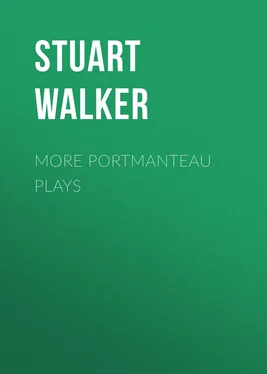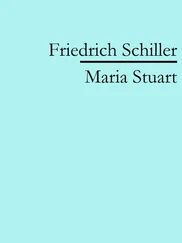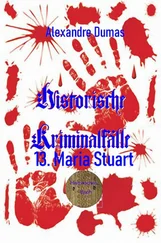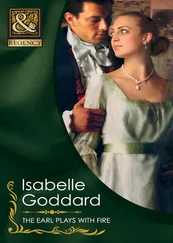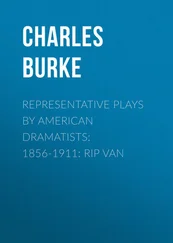THE GAKI
Which way to Kyushu?
OBAA-SAN
You have lost your way. Far, far back beyond the ferry landing at Ishiyama to your right. That is the way to Kyushu.
THE GAKI
Ah, me!
OBAA-SAN
You are tired. Will you not sit and rest?—Will you not have some rice?
THE GAKI
Oh, no.—Where is your brood, grandmother?
OBAA-SAN
I have no brood. I am no grandmother. I am no mother.
THE GAKI
What! Are there tears in your voice?
OBAA-SAN
Tears! Why should I weep?
THE GAKI
I do not know, grandmother!
OBAA-SAN
I am no grandmother!—Who sent you here to laugh at me?—O-Sode-San? 'Tis she who laughs at me, because—
THE GAKI
No one, old woman—
OBAA-SAN
Yes, yes, old woman. That is it. Old woman!—Who are you? I am not wont to cry my griefs to any one.
THE GAKI
Griefs? You have griefs?
OBAA-SAN
Ay! Even I —she whom they call Obaa-San—have griefs.—Even I! But they are locked deep within me. No one knows!
THE GAKI
Someone must know.
OBAA-SAN
I shall tell no one.
THE GAKI
Someone must know!
OBAA-SAN
You speak like some spirit—and I feel that I must obey.
THE GAKI
Someone must know!
OBAA-SAN
I shall not speak. Who cares?—What is it I shall do? Tell my story—unlock my heart—so that O-Sode-San may laugh and laugh and laugh. Is it not enough that some evil spirit feeds upon my deep unrest?
THE GAKI
How can one feed upon your unrest when you lock it in your heart? ( The voices of O-Sode-San and O-Katsu-San are heard calling to Obaa-San ) Here come some friends of yours. Tell them your tale.
[ He goes out.
OBAA-SAN
Strange. I feel that I must speak out my heart.
[ O-Sode-San and O-Katsu-San come in.
O-SODE-SAN
Good morning, grandmother!
OBAA-SAN ( with a strange wistfulness in her tone )
Good morning, O-Sode-San. Good morning, O-Katsu-San. May the bright day bring you a bright heart.
O-KATSU-SAN
And you, Obaa-San.
O-SODE-SAN
How is the weeping willow tree, grandmother?
OBAA-SAN
It is there—close to me.
O-SODE-SAN
And does it speak to you, grandmother—
OBAA-SAN
I am no grandmother! I am no grandmother! I am no mother! O-Sode, can you not understand? I am no mother.—I am no wife.—There is no one.—I am only an old woman.—In the spring I see the world turn green and I hear the song of happy birds and feel the perfumed balmy air upon my cheek—and every spring that cheek is older and more wrinkled and I have always been alone. I see the stars on a summer night and listen for the dawn—and there never has been a strong hand to touch me nor tiny fingers to reach out for me. I have heard the crisp autumn winds fight the falling leaves and I have known that long winter days and nights were coming—and I have always been alone—alone. I have pretended to you—what else could I do? Grandmother! Grandmother! Every time you speak the name, the emptiness of my life stands before me like a royal Kakemono all covered with unliving people.
Конец ознакомительного фрагмента.
Текст предоставлен ООО «ЛитРес».
Прочитайте эту книгу целиком, купив полную легальную версию на ЛитРес.
Безопасно оплатить книгу можно банковской картой Visa, MasterCard, Maestro, со счета мобильного телефона, с платежного терминала, в салоне МТС или Связной, через PayPal, WebMoney, Яндекс.Деньги, QIWI Кошелек, бонусными картами или другим удобным Вам способом.
Since America's entrance in the War given over to the "movies."
Mr. John Palmer, in his book, "The Future of the Theater," gives the following as the programme for the then, 1913, projected National Theater. The war intervened, however, and the venture has been lost sight of for the moment. This statement is even more reasonable than that of Mr. Archer, for this is intended for practical use in England while his was merely taken from France.
"… it seems desirable to state that a repertory theater should be held to mean a theater able to present at least two different plays of full length at evening performances in each completed week during the annual season, and at least three different plays at evening performances and matinées taken together … and the number of plays presented in a year should not be less than twenty-five. A play of full length means a play occupying at least two-thirds of the whole time of any performance. But two two-act plays, or three one-act plays, composing a single programme, should, for the purposes of this statute, be reckoned as equivalent to a play of full length."
As Mr. Palmer remarks "this statute is both elastic and watertight."
E. H. B.
See Appendix for complete repertories.
Announcement has just been made that Miss George will continue her repertory during the season of 1919-1920.
They only failed for $3000, however: the rent of a Broadway theater for a week.
This statement hardly applies to The Neighborhood Theater , or to that successor to The Washington Square Players , The Theater Guild , the work of which at the Garrick Theater , New York, during the first part of 1919 has been excellent in the very highest degree.
